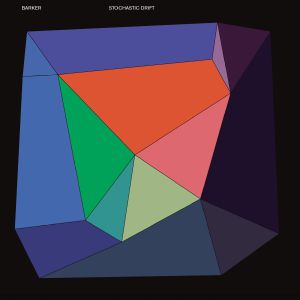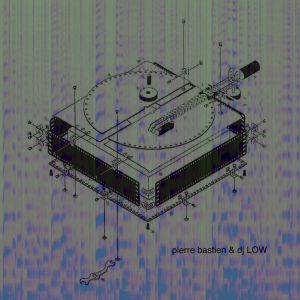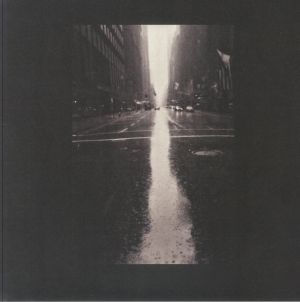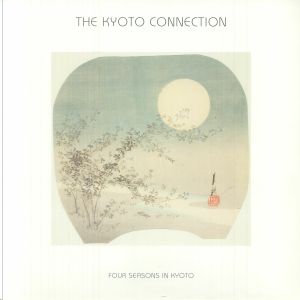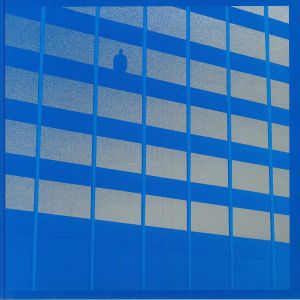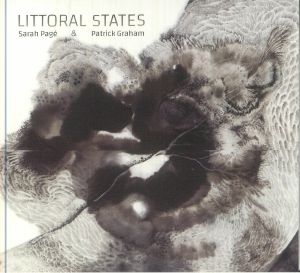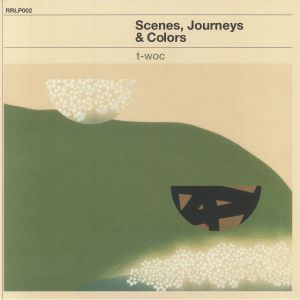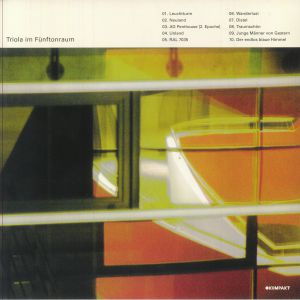Filter
Genre
Artist
Label
Featured
Release Title
Price
Tags
Back in stock: Leftfield
Leftfield vinyl represses and restocks
Artículos del 1 al 35 de 35 en la página 1 de 1
4321 Morte (Soundtrack) (reissue) (Record Store Day RSD 2025) (limited clear red vinyl LP + insert)
Cat: VMLP 266. Rel: 19 Apr 25
in stock $32.44
Intérprete: Juno Recommends Drum & Bass
in stock $36.03
Review: Barker's latest release is a masterclass in fluid experimentation, embracing unpredictability with a delicate balance of harmony and controlled chaos. Following his acclaimed previous work, this new collection of tracks finds him refining his craft while allowing for spontaneity to take the lead. Opening with 'Force of Habit', the project immediately sets a tone of shifting momentum, while Reframingithe serotonin-laced lead singleispirals through shimmering arpeggios, evoking echoes of classic trance before drifting into uncharted territory. Tracks like 'Difference' and 'Repetition' and 'The Remembering Self' showcase Barker's intricate layering, weaving together mechanical precision with an organic sense of movement. A deep dive into mechanical instrumentation lies at the heart of this work, with Barker exploring the possibilities of automation not as a replacement for human touch, but as a tool for new forms of expression. The result is a body of work that mirrors the uncertainty of its time, embracing change rather than resisting it. As the final moments of this LP fade out, Barker leaves us with a feeling of transformationimusic that adapts to the moment in which it exists.
… Read moreIntérprete: Juno Recommends Techno
in stock $25.22
in stock $28.82
As One Aflame Laid Bare By Desire (3xCD box set)
Cat: PRO 4222. Rel: 26 Mar 25
in stock $23.56
Crucible (reissue) (LP + MP3 download code)
Cat: CR 2292/FTR796. Rel: 31 Mar 25
in stock $28.55
Review: Grand River's (Aimee Portioli's) fifth studio album (her first after the brilliant In uno spazio immenso, her debut for Caterina Barbieri's label Light-years label) began as an installation in 2022. Having since evolved into multi-channel, 4DSOUND, and stereo formats, the record has bridged every hurdle to live performances it could possibly face. The 36-minute composition is divided into two parts: Portioli recorded various winds and transformed them via layering and pitch adjustments, fashioning the wind itself into an instrument. Going so far as to align the gusts to a 440hz reference and tuning particular instruments to windward passages, Portioli went with the wind, yet still wound up more alive than ever. Wind and synthesizers merge seamlessly, erasing the line between natural and human-made sound; silent until it meets an object, air currents produce an array of tones, from whispers, to roars, to melodies.
… Read more in stock $29.38
Stay/Sea (hand-numbered red vinyl LP in spot-varnished sleeve limited to 200 copies)
Cat: LAAPS 042LP. Rel: 04 Apr 25
Intérprete: Juno Recommends Ambient/Drone
in stock $29.38
Dran (Record Store Day RSD 2025) (12" limited to 250 copies)
Cat: SOULLP 219. Rel: 22 Apr 25
Intérprete: Juno Recommends Ambient/Drone
in stock $29.38
in stock $27.17
Faitiche Edition No 2 (hand-numbered cassette limited to 200 copies)
Cat: FAITEDITION 02. Rel: 17 Apr 25
Review: Following fast on the scorched heels of his most recent record Kosmische Pitch, Jan Jelinek now releases a fresh one for Faitiche: a recorded issuance of his 2022 performance, The Carpenters. Held at Uferstudio 1 in Berlin on July 20, 2022, two pieces transform an irrecognisable Carpenters' sample (the original song name is asterisked for perhaps obvious reasons) into salivatory stretch-scape. The original source is slowly unveiled near the end of the first half, almost of a moment of awakening from hypnosis. Then in the second half, Jelinek re-blurs the material, as if to descend the trough of a sinusoid wave. The Faitiche edition series houses such captivations exclusively on cassette, whose deprecatory format matches the exclusivity of the performance (though tape deck owners can also request a free digital download code).
… Read more in stock $17.73
in stock $26.05
in stock $20.79
in stock $29.11
Review: Four Seasons in Kyoto marks the final chapter in Argentina-based electronica group The Kyoto Connection's ambient trilogy following Postcards and The Flower, The Bird and The Mountain. The series is inspired by the ambient and environmental music of 1980s-90s Japan and this final piece of the puzzle paints another delightful musical portrait of rural life that has long been shaped by nature and tradition. Across 14 delicate, transportive compositions, producer Facundo Arena captures the emotional rhythm of Japan's changing seasons with whimsical melodies and gentle percussive patter, soothing vocal coos and more eerie and autumnal pieces. With contributions from Japanese friends and fans, this record feels personal and heartfelt and is a brilliant farewell to a project rooted in beauty and nostalgia.
… Read moreIntérprete: Juno Recommends Ambient/Drone
in stock $24.12
The Disney Book (gatefold 180 gram red vinyl 2xLP)
Cat: B 003612201. Rel: 01 Jan 90
in stock $31.60
Music From Succession (Record Store Day RSD 2025) (limited translucent blue vinyl 7" + numbered business card)
Cat: SIL 71791. Rel: 19 Apr 25
in stock $19.13
in stock $14.14
Review: Kali Malone's The Sacrificial Code stands tall, meditating on the perception of time through the pipe organ. Originally released in 2019, the album was shaped by Malone's engagement with tuning systems, electroacoustic composition, and Sweden's experimental music scene. Following her apprenticeship with organ tuner Jan Borjeson, she embraced historical temperaments and archaic compositional forms, stripping them down to their starkest essence. Now reissued by Ideologic Organ, this 2025 edition features a newly recorded 'Sacrificial Code III,' captured on the 16th-century meantone organ at Malmo Konstmuseum. Malone's meticulous recording process, from close-micing techniques to the spatial placement of sound, enhances the organ's physical presence, creating an immersive, time-dilating effect. Each chord resounds with the breath of the instrument, as the record's restrained grandeur invites listeners into an amorphous, time-bending experience.
… Read more! low stock $14.41
A Come Andromeda (Soundtrack) (reissue) (Record Store Day RSD 2025) (limited clear "acid" green vinyl LP + insert)
Cat: VMLP 261. Rel: 19 Apr 25
in stock $34.92
in stock $18.29
Reise Der Schatten (Soundtrack) (LP + MP3 download code)
Cat: HG 2502. Rel: 01 May 25
in stock $21.90
Review: Posuposu Otani is a mysterious throat singer and songwriter from Japan who dropped his debut physical album in March. By merging open-tuned guitar, Kohkin (aka the Jew's harp) and traditional throat singing, Otani creates a sound filled with rich harmonics and fluid rhythms that all evoke the mood of Impressionist art and explore themes of freedom, nature and self-discovery. Influenced by his punk roots, worldly travels and immersion in mountain life, Otani's storytelling music reflects his deep connection to the natural world and makes for a far-journeying listen.
… Read more! low stock $22.16
in stock $15.25
Contemplation (cassette + MP3 download code)
Cat: DRMAR 03. Rel: 10 Apr 25
in stock $12.19
Intérprete: Juno Recommends Ambient/Drone
in stock $44.34
Nickel Boys (Soundtrack) (limited gold marbled vinyl LP)
Cat: LKSO 366481. Rel: 02 May 25
in stock $29.11
in stock $24.95
Tornamented Walls (LP + MP3 download code)
Cat: MEA 054. Rel: 16 Apr 25
in stock $26.33
in stock $31.32
Review: Originally confined to CDia relic of a different timeiJorg Burger's early-2000s masterwork finally sees the vinyl treatment it deserves. Lush, transportive, and quietly radical, this is ambient techno at its most fluid, a body of work that drifts between nostalgia and movement, solitude and propulsion. 'Leuchtturm' remains untouched, its soft hand drums and hazy atmospheres still unfolding like a slow sunrise. Elsewhere, 'AG Penthouse' undergoes a transformation, its flute-like trills and glassy keys now fused to a churning rhythm that recalls Tangerine Dream's work on Thief, minus the guitar histrionics. Beat-driven yet deeply immersive, each track rises, crests and recedes in perfect sequence, a travelogue in the vein of Carl Craig's Landcruising or Model 500's Deep Space. What makes this release endure isn't just its shimmering detail but its refusal to conform. In a landscape where ambient techno so often leans on a specific nostalgia, Burger sidesteps the obvious, creating a listening experience that still feels singular, 21 years later.
… Read more in stock $27.99
VARIOUS
Star Trek Vol 2 (Soundtrack) (30th Anniversary Edition) (yellow & black splattered vinyl LP)
Cat: ZYX 212841. Rel: 31 Mar 25
in stock $16.91
John Williams Conducts The Star Wars Trilogy (May The 4th Be With You Edition) (limited numbered 180 gram audiophile transparent blue vinyl 2xLP)
Cat: MOVATM 415B. Rel: 30 Apr 25
in stock $45.45
Harry Potter & The Prisoner Of Azkaban (Soundtrack) (Record Store Day RSD 2025) (gatefold clear vinyl 2xLP)
Cat: RCV 183711. Rel: 22 Apr 25
in stock $55.42
Artículos del 1 al 35 de 35 en la página 1 de 1

 USD
USD








